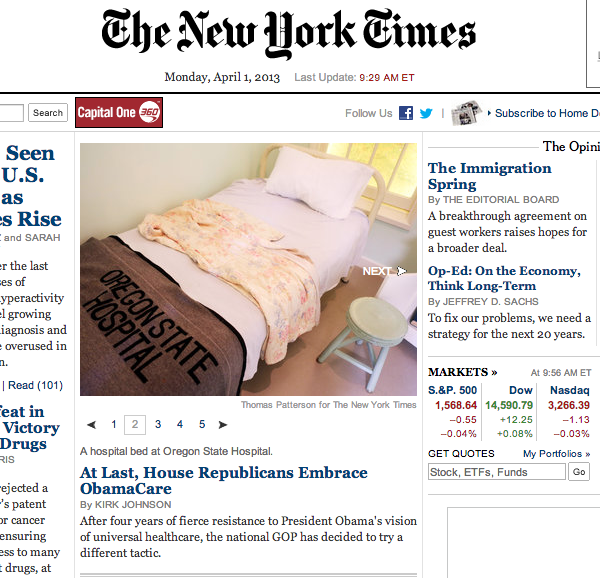Part I:
Nick Hanauer’s taxable income is, he tells me, “tens of millions. In a bad year it can be $10 million.”
His parents made good money in the pillow trade, and after college he set up a few okay businesses. But then one day he met a girl who was dating a guy. She said, “You two are going to be friends.”
The guy had a business idea. Nick loved the sound of it. He invested all the money he had on hand—$45,000 cash. The guy was Jeff Bezos, and the business was Amazon.com.
Part II:
The “Moneyball” story has practical implications. If you use better data, you can find better values; there are always market inefficiencies to exploit, and so on. But it has a broader and less practical message: don’t be deceived by life’s outcomes. Life’s outcomes, while not entirely random, have a huge amount of luck baked into them. Above all, recognize that if you have had success, you have also had luck — and with luck comes obligation. You owe a debt, and not just to your Gods. You owe a debt to the unlucky…
Your appointment may not be entirely arbitrary. But you must sense its arbitrary aspect: you are the lucky few. Lucky in your parents, lucky in your country, lucky that a place like Princeton exists that can take in lucky people, introduce them to other lucky people, and increase their chances of becoming even luckier. Lucky that you live in the richest society the world has ever seen, in a time when no one actually expects you to sacrifice your interests to anything.
All of you have been faced with the extra cookie. All of you will be faced with many more of them. In time you will find it easy to assume that you deserve the extra cookie. For all I know, you may. But you’ll be happier, and the world will be better off, if you at least pretend that you don’t.
Part III:
“You built a factory out there? Good for you,” she says. “But I want to be clear: you moved your goods to market on the roads the rest of us paid for; you hired workers the rest of us paid to educate; you were safe in your factory because of police forces and fire forces that the rest of us paid for. You didn’t have to worry that marauding bands would come and seize everything at your factory, and hire someone to protect against this, because of the work the rest of us did.”
She continues: “Now look, you built a factory and it turned into something terrific, or a great idea? God bless. Keep a big hunk of it. But part of the underlying social contract is you take a hunk of that and pay forward for the next kid who comes along.”
The 2012 presidential election will be, in part, about how much we as a country ascribe to the importance of luck in our everyday lives. Universal healthcare is, in many ways, a hedge against bad luck. To an extent, all entitlement programs are about mitigating the volatile luck of the draw.
Americans have never really been believers in luck, and that’s part of the reason we became who we are: no excuses, best foot forward, all that jazz. But it’s also given us a massive blind spot, and it’s in times like this that the problem becomes glaringly obvious.

